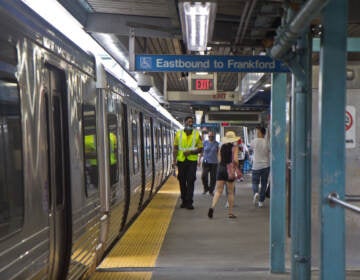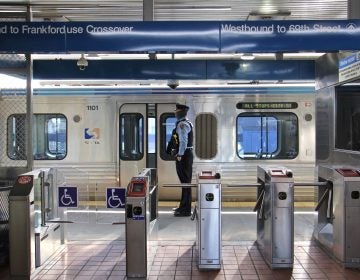SEPTA union president Willie Brown — the ‘most hated man in Philadelphia’ — has a new job
A labor agreement that averted a possible strike by SEPTA’s largest union will likely be the last helmed by TWU Local 234 President Willie Brown.

Willie Brown, president of TWU Local 234. (YouTube)
A proposed SEPTA labor agreement that averted a possible strike by SEPTA’s largest union will likely be the last helmed by Transit Workers Union Local 234 President Willie Brown.
Brown informed members earlier this year of his plans to transition to a new role with the TWU International as director of the Transit, Universities, Utilities, and Services Division. TWU International’s offices are based in Washington D.C. According to TWU International, Brown started work last month, amid contract negotiations.
“Willie Brown has done a fantastic job fighting on behalf of SEPTA workers in Philadelphia, and we know that he will bring that same fight to transit systems nationwide and will continue to assist with any SEPTA negotiations going forward,” said TWU International Administrative VP Curtis Tate.
Union local officers that move into national roles typically transition out of leadership positions. Still, it’s unclear exactly how or when Brown might do so, given the need to close out a deal the local spent months brokering. The contract still needs to be ratified by union members at a vote scheduled for Nov. 5., and approved by the SEPTA board.
Per union rules, Brown would be automatically succeeded by Brian Pollitt, TWU vice president. The union will hold new officer elections next fall.
A spokesperson for Brown did not immediately respond to requests for comment.
From the driver seat to the negotiating table
A former trolley driver who was raised in West Philadelphia, Brown has served as president of the local since 2008. He built a reputation as a bruising negotiator, unafraid of using the threat of a paralyzing transit strike in a bid to score contract wins. And, under Brown, the union notably made good on those during roughly weeklong strikes in 2009 and 2016.
Although both paled in comparison to months-long SEPTA strikes seen in the 80s and 90s, Brown often faced public barbs due to his tough-talking style, infamously referring to himself as the “most hated man in Philadelphia.” But Brown also won raises, bonuses, and pension bumps for members after both prior strikes.
Negotiations seemed to be deteriorating once again this month, with both camps forced into difficult positions by COVID-19 during a period of rising labor militancy.
Union leadership detailed low morale among members that worked through a pandemic that sickened hundreds of workers and killed at least 11, while drawing more crime to half-deserted trains and stations. The transit agency, meanwhile, is still largely operating off $1.5 billion in federal relief due to catastrophic ridership declines, and sought economic concessions from the union.
Although the union unanimously approved a strike authorization vote, some sources said neither side relished the prospect of a costly strike.
Instead, the tentative agreement circulated early Friday saw management agree to 3% pay raises, retroactive hazard pay, and other concessions, like parental leave. The contract also avoided concessions on healthcare costs and seniority rules.
At least some rank-and-file employees interviewed by WHYY News on Friday said they planned to vote in favor of the tentative contract.
“The biggest issues, I think for everyone, was us holding the line on medical costs and getting at least a cost of living raise, without healthcare costs eating into that,” said SEPTA track worker Marc Schwoerer. “Everyone’s relieved. We got a fair and equitable contract, in my opinion, with no work stoppage or disruption of service.”

Subscribe to PlanPhilly
WHYY is your source for fact-based, in-depth journalism and information. As a nonprofit organization, we rely on financial support from readers like you. Please give today.









